
New Study Reassesses Mount Ararat’s Role in the Noah Ark Tradition Across Three Faiths
Mount Ararat is often presented as a question. Did the Ark land there — or not? But a new academic study suggests we may have been asking the wrong question all along. Instead of searching for frozen timber beneath glaciers, the 2025 research turns to something more complex: how one mountain carries three different sacred
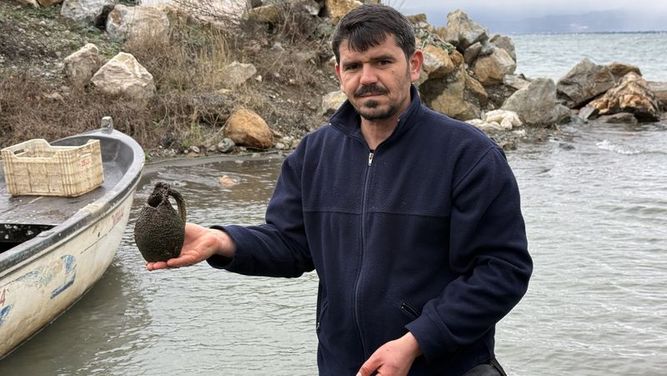
Fishing Net Snags Possible Ancient Jar as Water Levels Drop in Lake İznik
A routine morning on Lake İznik turned unexpectedly archaeological this week, when a fisherman’s net surfaced not with carp or perch—but with what appears to be a historic clay jar. The incident occurred along the shores of Göllüce, a neighborhood on the western edge of the lake in Bursa, northwestern Türkiye. As drought conditions continue
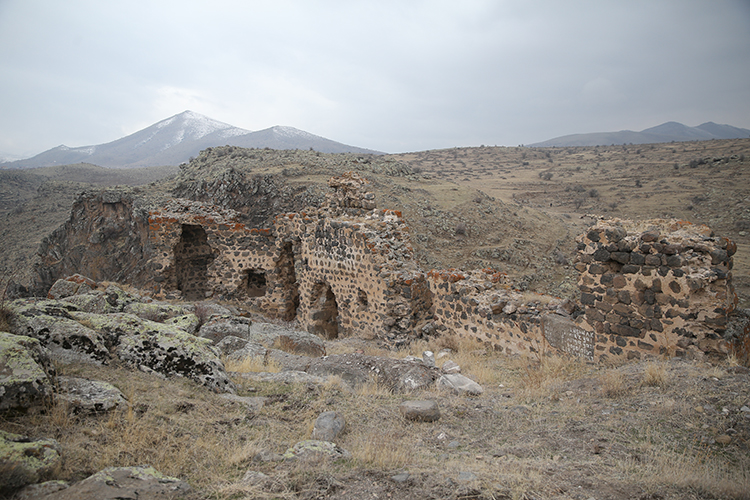
A 1,000-Year-Old Fortress Overlooking the Melendiz Plain Still Stands in Central Anatolia
Rising from a sheer rock formation above the Melendiz Plain, the medieval Murtaza Castle continues to dominate the landscape of central Anatolia nearly a millennium after its construction. Located near the village of Murtaza in the Çiftlik district of Niğde, the fortress offers rare insight into how geography, military strategy, and natural topography shaped defensive
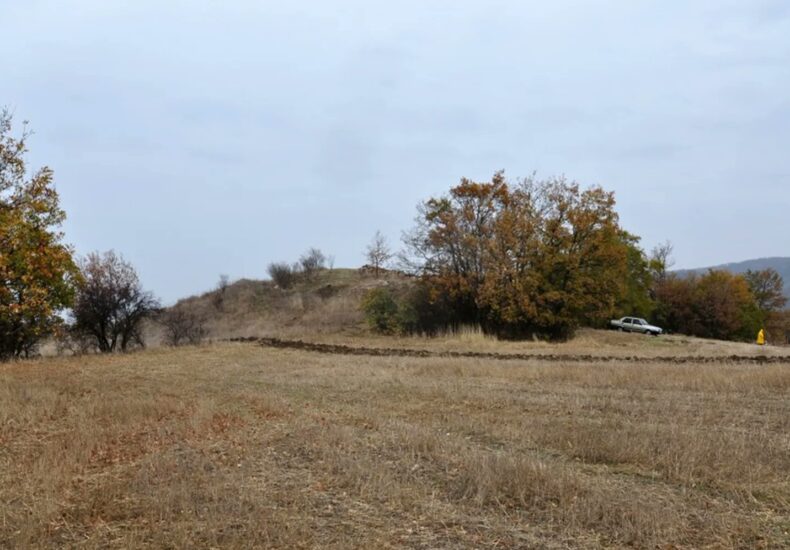
In Midas’ Shadow? The Royal Phrygian Tumulus in Western Anatolia Is Reshaping the Power Map
For much of the last century, the political and ceremonial geography of Phrygia has been interpreted through a single focal point: Gordion. Long regarded as the unquestioned center of royal authority, the city shaped how scholars understood power, hierarchy, and elite identity in Iron Age Anatolia. A newly analyzed burial from western Anatolia, however, is
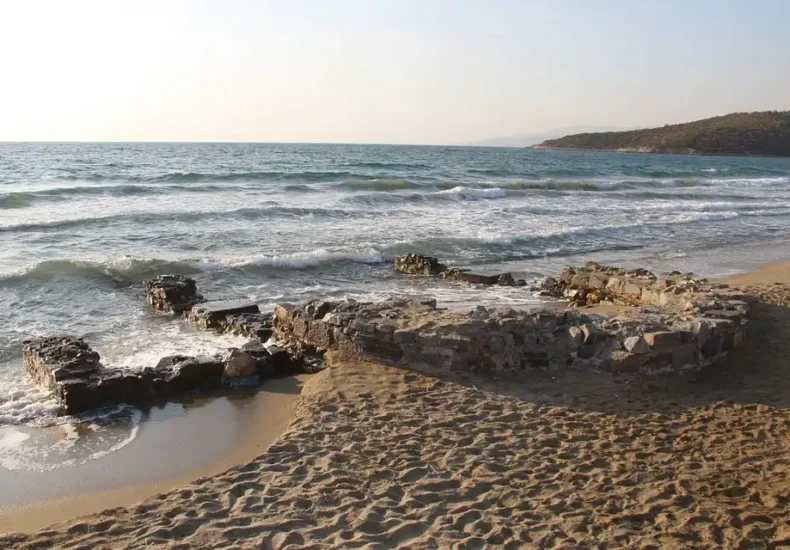
Pygela Necropolis in Kuşadası Granted First-Degree Archaeological Protection
A previously overlooked burial landscape connected to the ancient city of Pygela, near modern-day Kuşadası in western Türkiye, has now been officially designated a First-Degree Archaeological Site. The decision places the Otuzbirler Mevkii Necropolis under the highest level of legal protection, reflecting growing recognition of the area’s archaeological sensitivity and future research potential. Official designation
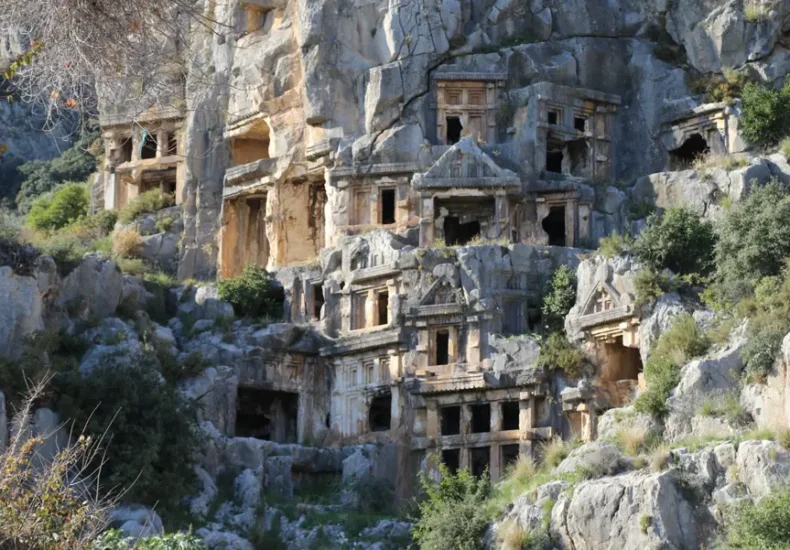
Myra’s Monumental Roman Theatre Set for Restoration as Archaeologists Call the City “Anatolia’s Pompeii”
Archaeological excavations and conservation projects at Myra Ancient City and its ancient harbor, Andriake, on Türkiye’s Mediterranean coast have entered a decisive new phase. Officials have confirmed that restoration of Myra’s monumental Roman theatre is scheduled to begin in 2026, while a selection of exceptionally rare artifacts uncovered during recent excavations is now being displayed
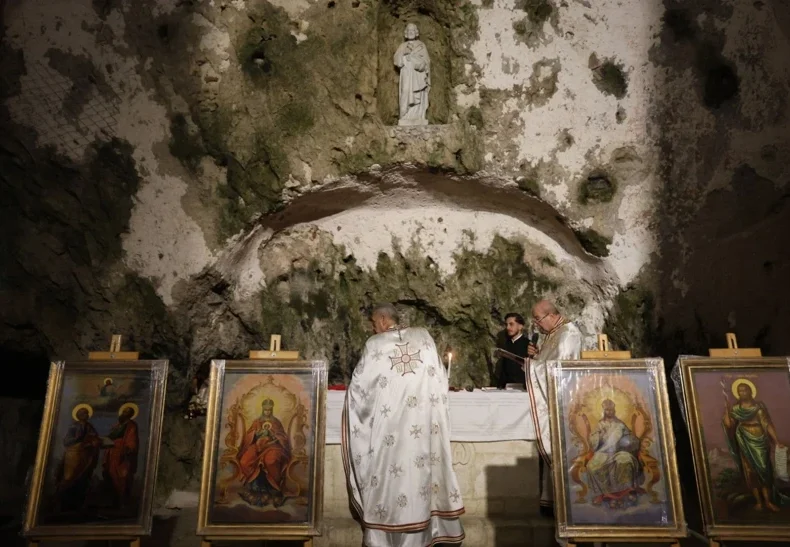
Christmas Liturgy Held at the World’s Oldest Cave Church in Antakya
A Christmas liturgy was held at Saint Pierre Church, a site widely regarded as the world’s oldest cave church and one of the most important landmarks of early Christianity. Located on the slopes near Habib-i Neccar Mountain in Antakya, the ancient sanctuary once again became a place of worship, linking present-day religious practice with the
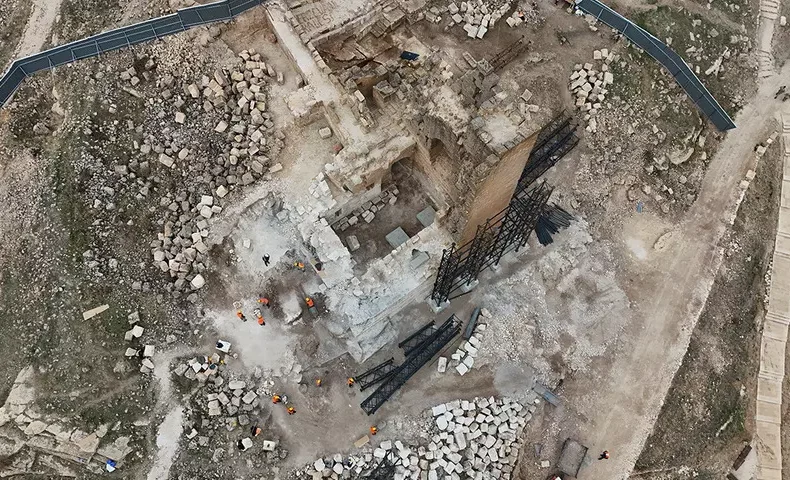
Restoration Works to Expand at Zerzevan Castle, the Easternmost Garrison of the Roman Empire
Restoration efforts are set to enter a new phase at Zerzevan Castle, one of the most strategically significant military installations on the eastern frontier of the Roman Empire. While conservation work continues at the southern tower and the large basilica, plans are in place to extend restoration next year to the underground church, the Mithras
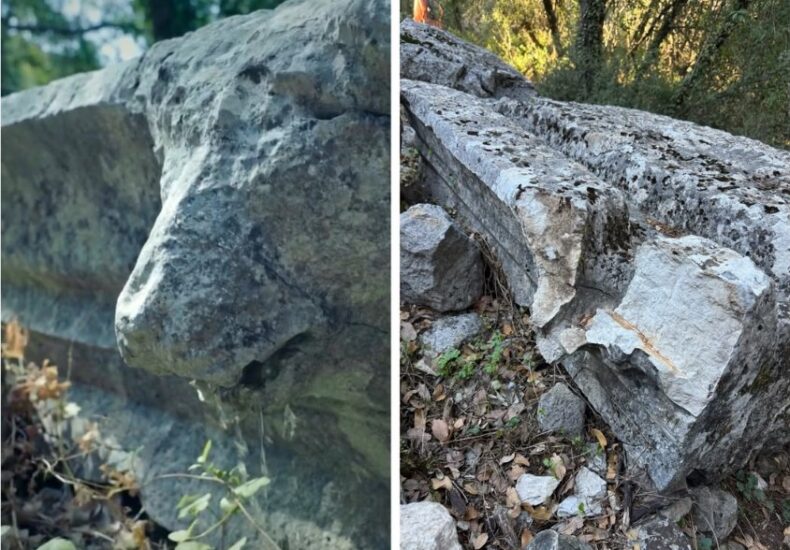
2,000-Year-Old Lion-Headed Gargoyle Damaged at Termessos, the City Alexander the Great Could Not Conquer
At the ancient city of Termessos, one of the most dramatic mountain strongholds of ancient Anatolia, a 2,000-year-old lion-headed gargoyle has been found broken, raising renewed concerns about the protection of archaeological heritage sites in Türkiye. Located at an altitude of around 1,150 meters in the Taurus Mountains near Antalya, Termessos is famously known as

Noted by an English Traveler in 1835, Burdur’s Serençay Canyon Preserves Late Roman Settlement
In the rugged interior of southwestern Anatolia, a narrow canyon carved by nature also carries the marks of human survival and belief. Serençay Canyon, located in Türkiye’s Burdur province, was already attracting attention in the early 19th century, when an English traveler recorded its rock-cut landscape in 1835. Nearly two centuries later, the same canyon
